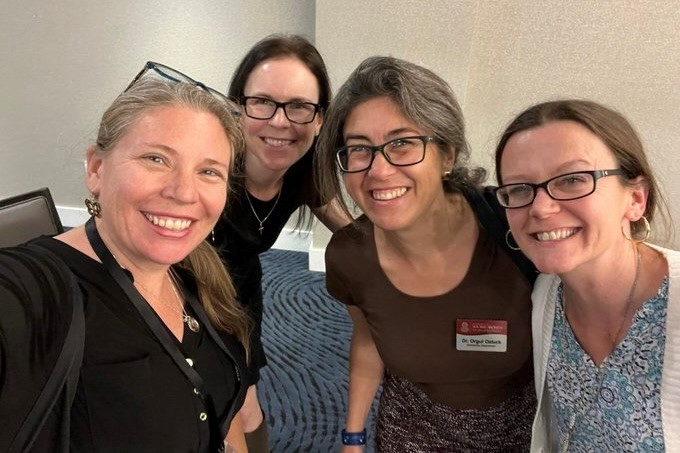In This Story

Women and nonbinary economics PhD students entering the late stages of their programs looking for guidance in navigating the pathway to their degree are welcome to participate in half-day mentoring workshops held in conjunction with the 93rd Southern Economics Association Conference in New Orleans in November.
In most economics PhD programs, students will have completed their coursework and chosen their fields by the completion of their second year. Students then face the daunting—and exciting—task of conducting their own independent research. At this juncture, students can feel overwhelmed and lost. This can be particularly true for women and nonbinary students who are substantially underrepresented in economics education and the profession at large and face a variety of systemic barriers.
They may be at a particular disadvantage and may lack peers, role models, or mentors in their own departments and networks.
“Mentoring is one of the most important roles we can play in the building the pipeline of future economists,” said Catherine Maclean, a health and labor economist teaching at George Mason University’s Schar School of Policy and Government. Maclean said mentorship “at this critical stage of career development can have cascading effects throughout the career.
“While system-wide changes are needed to advance the careers of women and other minorities within the profession, workshops like this one can begin to address this need.”
There are benefits to the mentors as well: “Organizing this workshop is the most rewarding professional activity I have experienced to date,” said Maclean, who is participating in her third workshop and is codirector of mentoring for the Association for Mentoring & Inclusion in Economics.
In addition to Maclean, organizers of the mentoring sessions include Celeste Carruthers, distinguished professor of labor economics at the University of Tennessee; Melanie Guldi, associate professor at the University of Central Florida; and Orgul D. Ozturk, professor and department chair of the Darla Moore School of Business at the University of South Carolina.
The mentoring workshop, which will take place Friday, November 17, is supported by the Alfred P. Sloan Foundation and the Committee on the Status of Women in the Economics Profession (CSWEP), a committee of the American Economic Association (AEA). The material used in the workshop is based on the work of Maya Rossin-Slater, associate professor of health policy at Stanford University.
Full details on the workshop, including application information, can be found on the CSWEP website.
“Mentoring is incredibly important for development of junior and early career economists, so it is important to do it right,” said Thanh Lu, a postdoctoral associate at Weill Cornell Medical College who served as a mentor in past workshops. “This was my first time participating as a mentor and it was an exciting and rewarding experience for me. I was paired with an experienced mentor and learned a great deal about mentoring from them. I really enjoyed the whole experience.”
Programs like CSWEP’s workshop, Thanh added, “offer an opportunity for connecting with other female and nonbinary professional colleagues since attending conferences as a female/nonbinary student in a male-dominant field can be intimidating. Seeing familiar faces at conferences help students and mentees with their professional networking journey.”
Nan Clement, a doctoral student in economics at the University of Texas at Dallas, said “the workshop benefits me the most when I discuss my work and theirs with more people” and credits the mentoring team with helping her reach her goals.
“They do not know how thankful I am for all the great help and support,” she said. “I can only pay it forward when I am later in my career.”
